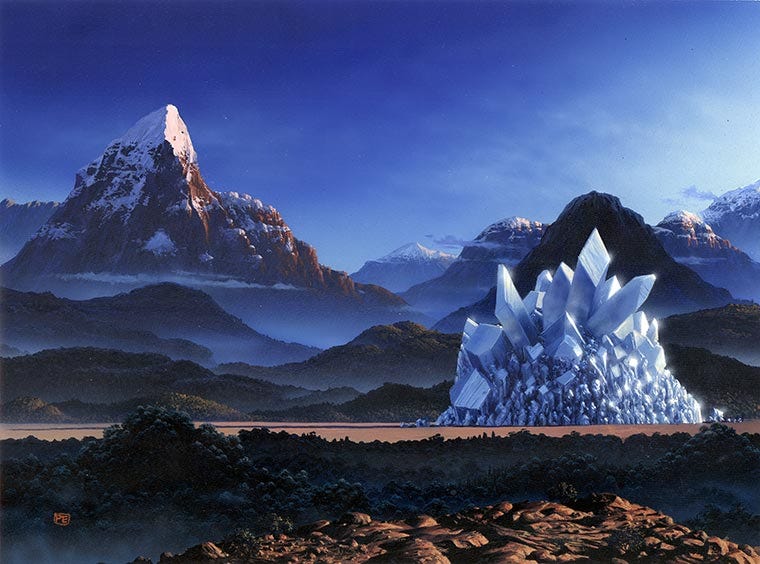#100 - Infinite Progress

Are resources finite? Most would think yes. They might also raise the concern that we are running out of them, and that we must consume at a sustainable rate.
But there’s a deep flaw in that kind of thinking. It assumes people as inherently destructive.
It is misleading to call coal a “natural” resource. Without our knowledge of how to extract and use coal as a source of energy, it would remain just a rock.
We find ourselves in an environment that is the product of ideas. Just look around you at the evidence of civilization. Look at how the natural world has been pruned and modified.
People are inherently creative. You cannot look at the genes of Homo sapiens and predict the Burj Khalifa.
Resources are limited by our knowledge. And no law of nature limits the amount of wealth we can create or the magnitude of progress we can make.
The world is a malleable place. Knowledge is as transformative as any other force of nature.
The universe is practically infinite. But the size of the universe shouldn’t denigrate the significance we place on ourselves. Instead, it should inspire us to take ourselves even more seriously.
As far as we know, we are the only creatures in the universe that can understand anything there is to be understood. If we extinguish the light of consciousness now, it would indeed be a tragic event.
The weekly roundup
1. Book I’m reading
Objective Knowledge: An Evolutionary Approach by Karl Popper
Popper at his best.
2. A reflection on Jacob Bronowski’s “The Ascent of Man”
“Bronowski saw the purpose of art as being the same as that of science: to give meaning and order to our experience by revealing hidden structure beneath the appearances.”
David Deutsch on Jacob Bronowski’s The Ascent of Man: “Not Merely the Finest TV Documentary Series Ever Made”.
3. Naval on becoming uncompromising
Being uncompromising is not a luxury of being wealthy. Being wealthy is a result of being uncompromising.
4. On the righteousness of criticism
“It may be difficult to get people—conditioned to resent criticism and expect it to be resented, and therefore to keep silent about both their own mistakes and others'—to provide the criticisms on which improvement depends; but no one can possibly give us more service than by showing us what is wrong with what we think or do; and the bigger the fault, the bigger the improvement made possible by its revelation. The man who welcomes and acts on criticism will prize it almost above friendship: the man who fights it out of concern to maintain his position is clinging to non-growth.”
— Bryan Magee, Philosophy and the Real World: An Introduction to Karl Popper
New Podcast Episode
#18 – Yaron Brook: Humans, Inequality and AI
Yaron Brook is an objectivist philosopher, podcaster, and author. We talk about the uniqueness of humans, Christian morality, inequality, artificial intelligence, education, epistemology, and other topics.
Listen on Apple Podcasts or Spotify.
That was the 100th edition of Progress Good. An infinite more to go?


Two excellent books that also strongly challenge the idea that resources are finite in any useful sense are the recent Superabundance, and the Julian L. Simon classic, The Ultimate Resource II.
Given the right knowledge, resource might be infinity!
Great again